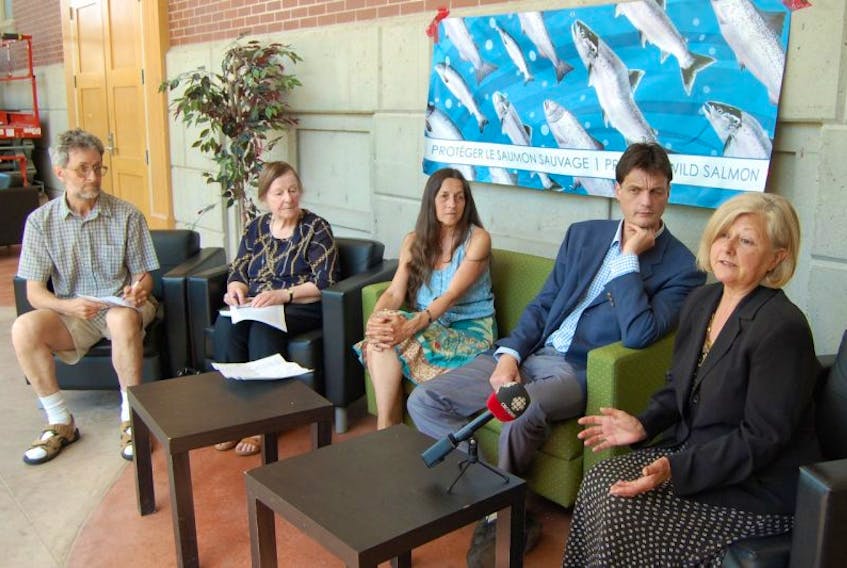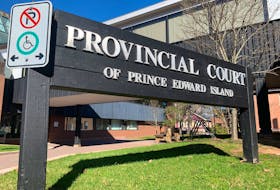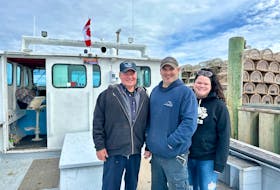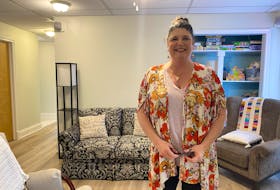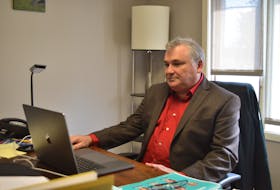Last week, the provincial government approved AquaBounty Canada Inc.’s application to expand its current facility in Rollo Bay by building two 40,000 square foot structures where they company will rear AquaAdvantage salmon, a sterile genetically modified (GM) salmon, from eyed egg to market size.
On Tuesday, representatives from local and national environmental groups held a joint press conference to call on McKenna to step in and conduct further study on this project.
McKenna is in Prince Edward Island this week for the Commission for Environmental Cooperation meetings.
“There has been no scientific assessment of the commercial production of this animal, and commercial production is a whole different ballgame,” said Mark Butler of Halifax-based Ecology Action Centre, which was part of an unsuccessfully court challenge against Aquabounty.
“What we’re asking the federal minister to do is to step in and to do a full assessment of the commercial production to GM salmon.”
Environmental advocates are concerned about the possibility that the genetically modified salmon could escape and cause harm to natural salmon stocks and ecosystems.
Karen Wristen from the British Columbia-based Living Oceans Society says Aquabounty’s salmon grow twice as fast as wild salmon and thus could threaten food stocks. There are also concerns about the claim GM salmon would not be able to reproduce.
“The problem, if they are infertile, is still competition for habitat and food… and the process for creating infertile eggs is not foolproof, it’s about 95 per cent effective,” Wristen said.
That’s why the Living Oceans Society wants a full risk-assessment done on what would happen if the salmon were to escape.
“Thus far they are just relying on the suggestion that because there is containment built into the plan design, the fish will never escape. How many times have human systems we’ve created failed? It’s certainly not one I want to rely on in order to protect an entire ecosystem.”
Butler pointed to a parliamentary report tabled earlier this month by the federal Standing Committee on Environment and Sustainable Development that called for a more effective and transparent regulatory regime for genetically modified organisms in Canada.
“There are clearly issues surrounding the current regulatory regime for genetically modified organisms that renders it inadequate to face the challenges posed by the rapidly advancing area of biotechnology,” the committee report states.
Environmental advocates are hoping the federal and provincial governments will slow down the development of this GMO facility until a national conversation has been held into the ethics behind growing genetically modified animals.
“There needs to be robust debate on whether or not this should be done,” Wristen said.
“Halt the approval and study what will happen, specifically, what will happen if these fish escape and how we protect wild salmon from the escapees.”

